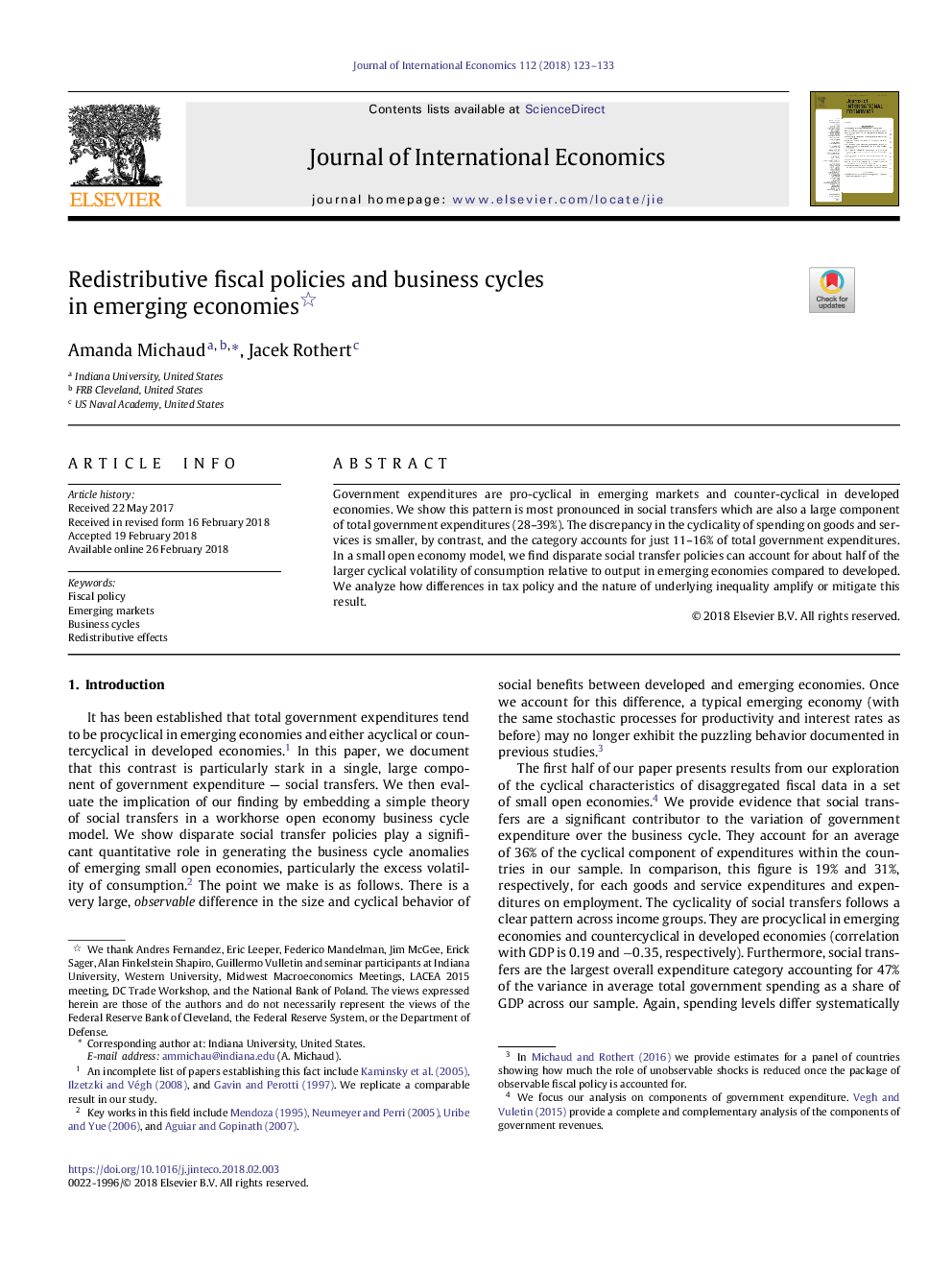| Article ID | Journal | Published Year | Pages | File Type |
|---|---|---|---|---|
| 7363888 | Journal of International Economics | 2018 | 11 Pages |
Abstract
Government expenditures are pro-cyclical in emerging markets and counter-cyclical in developed economies. We show this pattern is most pronounced in social transfers which are also a large component of total government expenditures (28-39%). The discrepancy in the cyclicality of spending on goods and services is smaller, by contrast, and the category accounts for just 11-16% of total government expenditures. In a small open economy model, we find disparate social transfer policies can account for about half of the larger cyclical volatility of consumption relative to output in emerging economies compared to developed. We analyze how differences in tax policy and the nature of underlying inequality amplify or mitigate this result.
Related Topics
Social Sciences and Humanities
Economics, Econometrics and Finance
Economics and Econometrics
Authors
Amanda Michaud, Jacek Rothert,
